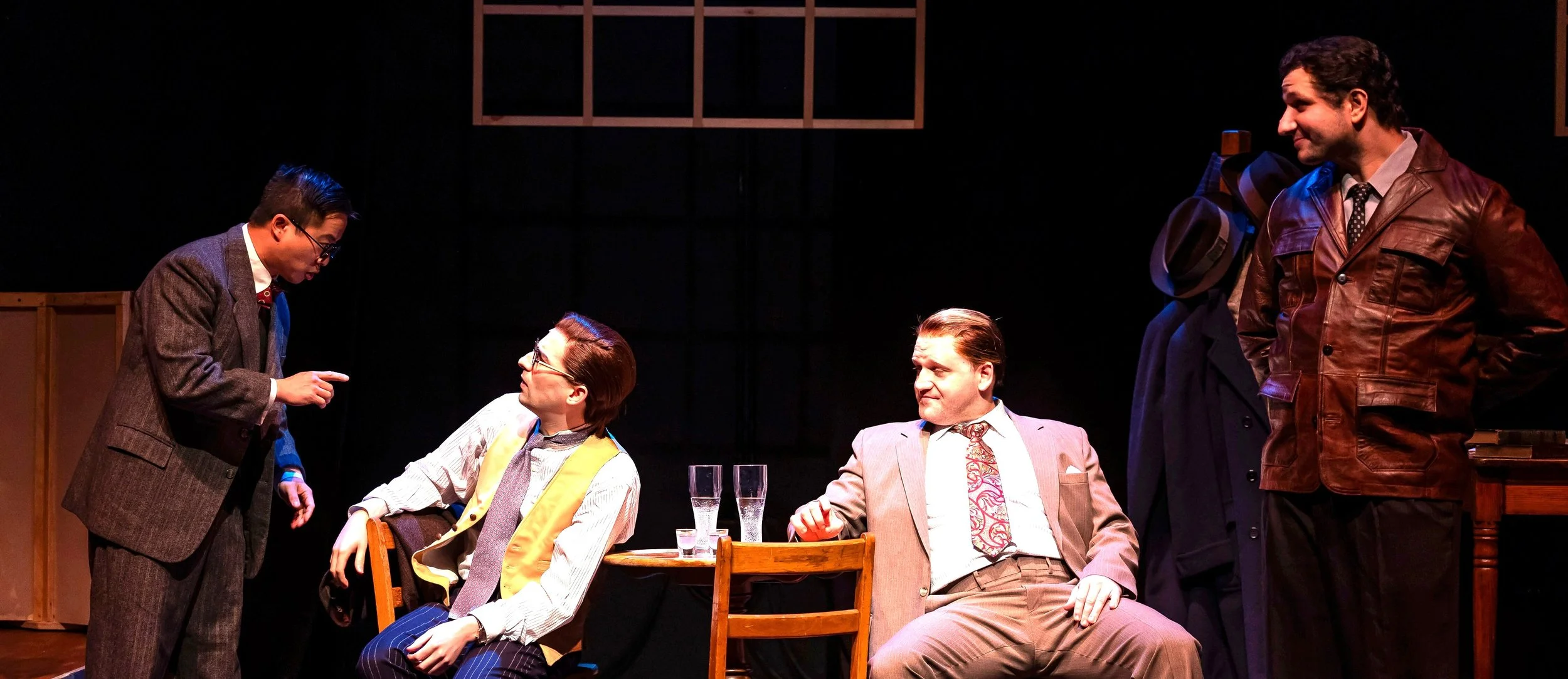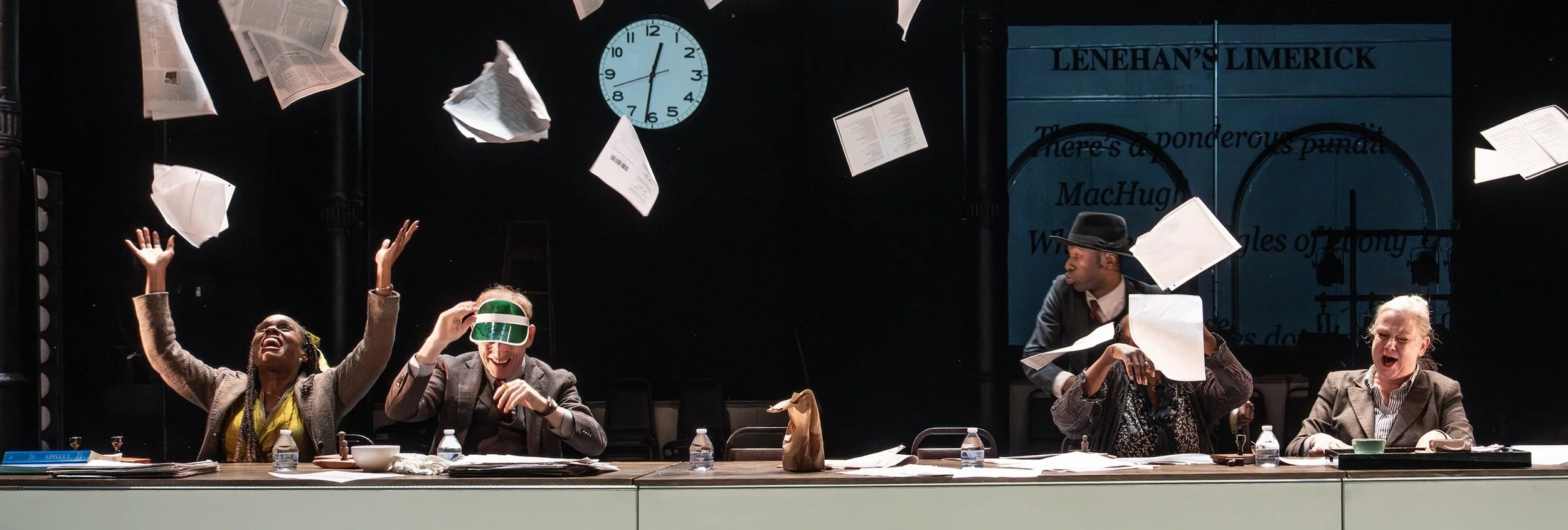Luckily for dramatist Elda Cusick, the director of her new play, Austin, A Summer Night's Dream in Hell's Kitchen, hired very good actors; they are the saving grace for a rambling and extremely shopworn script. It is truly unfortunate that Cusick’s muddled drama has wasted such talent.
The playwright purports to tell the story of the title character, a middle-aged, recovering addict (Thomas G. Waites), who returns to his family after his seventh stint in rehab. Austin surprises his wife, Petra (Rochelle Boström), and teenage daughter, Dory (Michaela Waites), who are living in Brooklyn. However, he is staying with his brother Martin (James McAffrey) in their childhood brownstone in Hell’s Kitchen.
In rehab Austin has had a relationship with one of the therapists, Andy (AJ Cedeño), who uses gardening as rehabilitation tool. Juxtaposed to this unethical patient/therapist behavior, Dory complains to her mother that her therapist is touching her inappropriately. Petra brushes off the concern with, “That’s called ‘therapeutic touch,’ to comfort you,” but quickly follows it with “You could dress more modestly.”
Austin is riddled with narratives, most which are poorly thought out. Every character is conflicted, and it’s no surprise that Cusick uses the name Pandora for the daughter (“Dory” for short). The only common, if entirely preposterous, theme, is that Austin believes he will return to his wife and daughter. Andy chastises him about his sexual ambivalence: “There’s a lot of guys like you, your age bracket, having problems like you’re having.” Meanwhile, Andy suffers from his own internal conflict and attempts to kiss Dory. Later, Dory admits to her uncle, Martin, who has been having an affair with her mother for years, that she has been having sex with a number of men: François, Pascal, a deli guy, a mechanic, and a policeman, to name a few. She’s pregnant but, shockingly, doesn’t know who is the father.
Whether Austin the play, not the man, could be fixed is entirely questionable. Cusick’s script has a deep distrust of therapists, which is prevalent throughout, and she does not appear to have an understanding of addiction or rehab. With information so readily accessible on the Internet, her lack of knowledge regarding science or the basic concept of linear time is even more striking.
The absurdities are startlingly apparent in a scene in which Dory reminds her mother of the time that she “put the thermometer in the pea soup on the stove to get a high temperature so I wouldn’t have to go to school” and that it broke in the soup, which they subsequently ate. The fact they all survived drinking mercury, when even a minuscule amount is lethal, is utterly confounding—not to mention that nobody noticed the glass in the soup.
Director Ed Setrakian’s staging for the most part is passable. However, he hasn’t helped the writer clear up some of the clumsy storylines, and much of the blame for the play’s failure belongs to him. Set changes are cumbersome and lengthy, and the rooftop scene at the end is played on a high upper level. In the scene Austin finally learns of his wife’s affair with his brother and confronts Marty. They fight, but it loses all impact by the sheer distance from the audience. The hashed and rehashed story of the gay or lesbian dying a tragic death is dated and, frankly, offensive. More so with the additional details that Martin, at the behest of their father, beat his brother brutally when they were children because Austin was thought to be a sissy.
Life may be this messy, but Austin comes off as a ripoff of a film noir interspersed with narratives from a cheap romance novel. Cusick provides little for the audience to latch on to, with themes that are trapped in a time warp. Sadly, even with the quality of the actors, there isn’t a character worth caring about.
Austin continues through Sept. 9 at The Lion Theatre (410 W. 42nd St., between 9th and 10th avenues). Evening performances are Wednesday through Saturday at 8 p.m.; matinees are at 2 p.m. Saturday and 3 p.m. Sunday. Tickets are $59.50 and available by calling Telecharge at (212) 239-6200 or (800) 432-7250 or visiting Telecharge.com.








